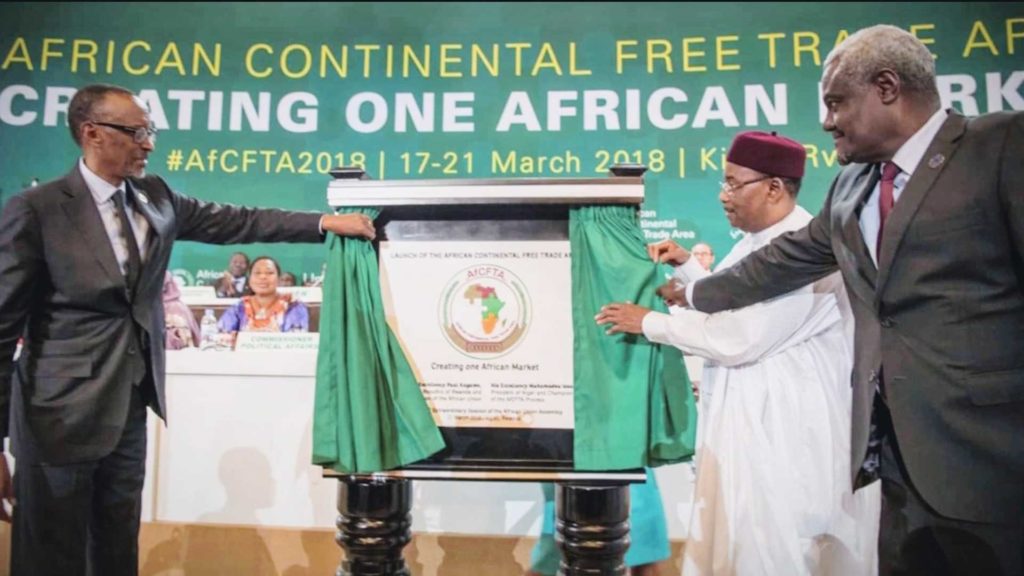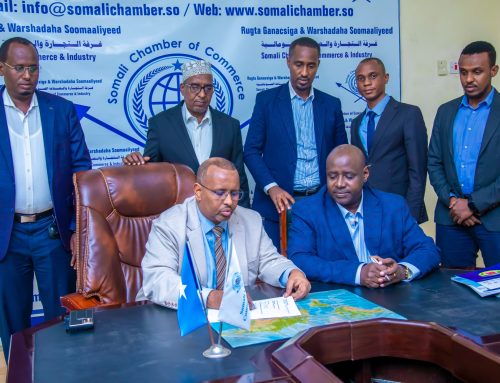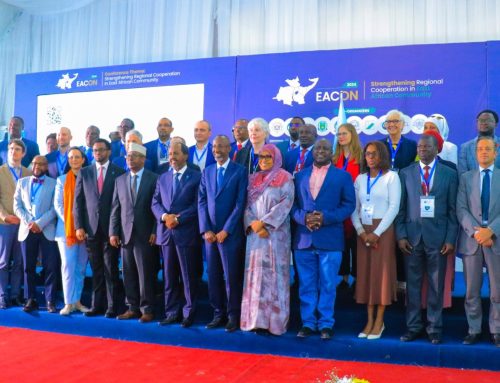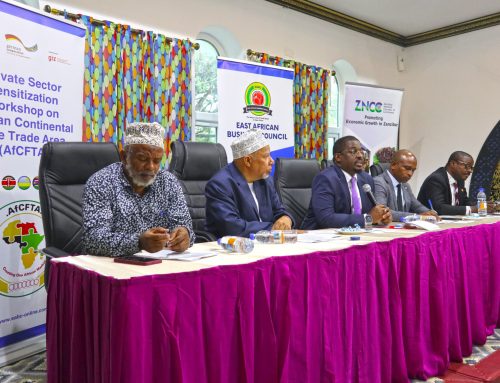Tuesday, 1st March 2022, Arusha, Tanzania:- Complying to the Rules of Origin (RoO) requirement under Free Trade Area is perceived as the most restrictive aspect to trading. Both Firms and small-scale women cross-border traders face difficulty in conforming to RoO.
This was revealed by the African Continental Free Trade Area (AfCFTA) Country Business Index (ACBI) Report that surveyed businesses in Angola, Cote d’Ivoire, Gabon, Kenya, Namibia, Nigeria and South Africa.
Speaking at the Webinar on Primer for the African Continental Free Trade Area (AfCFTA) Country Business Index Report organized by Economic Commission for Africa (ECA), Mr. Kalisa said, “there is need for a flexible, clear predictable rules of origin for business to benefit from AfCFTA.”
He expounded that the current structure rules of origin are restrictive in nature.
The ACBI focuses on business perceptions of trading under the Free Trade Area by looking into constraints and challenges. It consists of three broad dimensions 1) Good Restrictiveness and Costs 2) AfCFTA Knowledge and Use 3) Commercial Environment in particular domestic environment related to services and other “new generation issues” under negotiation in the AfCFTA.
On her part, Ms. Mama Keita, Director of the Sub-Regional Office for East Africa
(SRO-EA), UNECA said,” the ACBI notes Africa can boost intra-African trade by 26% in 2045 only by ensuring an active engagement with the private sector in the implementation of the AfCFTA.”
Mr. Kalisa further explained that intra-regional trade is sliding back below 20% due to persistent tariff and Non-Tariff Barriers imposed on both large and micro small medium enterprises. He recommends sensitization campaigns on the AfCFTA, harmonization of standards and sanitary and phytosanitary (SPS) measures and improving transport and logistics in the continent.
Mr. Stephen N. Karingi, Director of Regional
Integration and Trade Division (RITD), UNECA said the ACBI average score is 4.9 revealing businesses in Angola, Cote d’Ivoire, Gabon, Kenya, Nigeria, Namibia and South Africa are neutral in perception regarding their country’s environment for trading and investing in goods across African borders. The ACBI calls for more support to equip enterprises to identify strategic interest and market opportunities in light of the AfCFTA.
Hanan Morsy, Deputy Executive Secretary and Chief Economist, ECA said” Intra African trade is a key driver in building forward for a green, inclusive and resilient Africa.”
She explained the African Continental Free Trade Area (AfCFTA) Agreement has huge potential to drive sustainable development. ECA research forecasts that in 2045 Gross Domestic Product will be USD 55 billion higher and welfare will increase by USD.3 billion through the implementation of the AfCFTA.
Hanan Morsy urged for simplification of administrative procedures to ease of doing business across Africa. She explained that the development of simplified regimes on the Rules of Origin will improve the utilization of existing FTAs and deepen value chain integration across borders.
According to ACBI, the surveyed countries performed better in on Awareness and Use of FTAs, followed by Commercial Environment. 64% of firms across all countries indicate awareness of their country’s participation in the AfCFTA.
ACBI shows Goods Restrictiveness and Costs constitute significant challenges to trading within the continent. Unauthorized charges and other charges on trade are perceived as the most restrictive. Interviewed firms are positive regarding sanitary and phytosanitary measures and technical barriers.
Ms. Letty Chiwara, UN Women Representative to Ethiopia, AU and UNECA, Ms. Eskedar Nega Woldekidan, Team Leader, Regional Office for Africa, United Nations Development Coordination Office (UN-DCO) and Ms. Madalitso Kazembe, Acting President, SADC Business Council shared insights on trading in Africa during the Webinar on Primer for the African Continental Free Trade Area (AfCFTA) Country Business Index Report.
The ACBI also reveals trading across borders is more challenging for female-owned firms compared to male-owned firms. The ACBI recommends African countries to design gender-specific policy responses to support inclusive implementation of the AfCFTA.
On the second phase of negotiation of the AfCFTA, surveyed businesses in all seven countries have a relatively neutral perception of the overall policy regime in place for Services, Investment, Intellectual Property Rights and Competition.
The ACBI also states that Africa countries should continue ratifying and signing key agreements to foster trade and investment within Africa including the Single African Air Transport Market. The protocols on Free Movement of Persons, Investment protocol, Competition, Intellectual Property Rights and Electronic Commerce.





